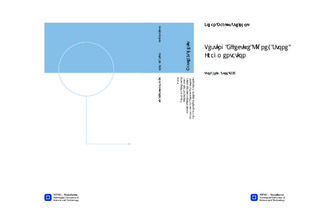Testing Effective Kidney Stone Fragmentation
Master thesis
Permanent lenke
http://hdl.handle.net/11250/260999Utgivelsesdato
2013Metadata
Vis full innførselSamlinger
Sammendrag
During extracorporeal shock wave lithotripsy, kidney stone movement causes a significant amount (more than 50%) of treatment energy to miss the stone. It is desirable to deveop a system that is able to track the stone and control the lithotriptor to ensure that all shock waves hit their target. The goals of this thesis were to examine what parameters affect kidney stone fragmentation during ESWL and to develop a test setup for evaluating methods of ESWL treatment. Building on exixting tracking software and test components developed in past project and master theses, the test setup was completed. An ESWL control unit was developed, utilizing an ECG interface to the lithotriptor. A kidney simulator tank previously developed was augmented and model stones were produced. The tracking system requires prediction to accurately estimate the stones position because of delays in the modules of the test setup, so these delays were identified experimentally. The impact of movement on fragmentation efficiency were examined through fragmentation tests on model stones in the test system. The functionality of the new modules in the test system were verified on a lithotriptor at St. Olavs Hospital. Results show that the delay of the total system is approx 300 ms with some jitter. Results from the fragmentation tests suggest that stone movement sigificantly affects fragmentation efficiency. A moving stone receives less shock wave energy, and is therefore less fragmented. A system which can ensure a high hit percentage will therefore make treatment more efficient than during normal practice.
